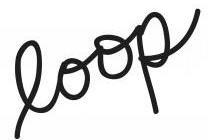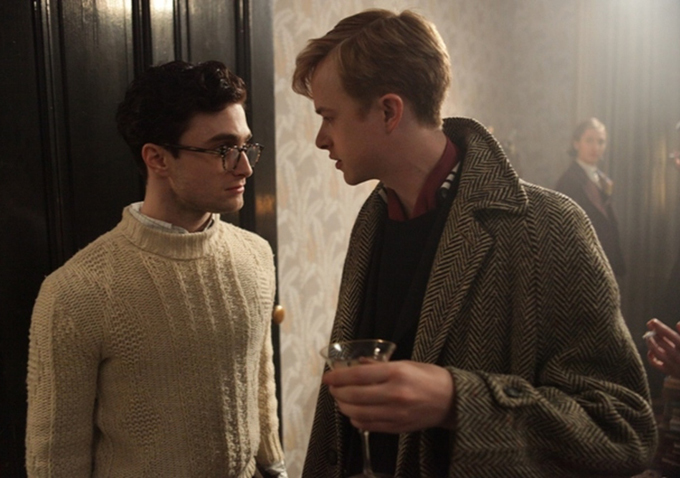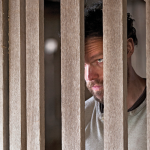“In writing, you must kill all your darlings.”—William Faulkner
As a former lit geek (OK fine, I used to call myself a poet), I’ve been very appreciative of this year’s celebration of the beats on the big screen, as cliche as it all might seem. And I can’t even compare John Krokidas’ Kill Your Darlings to Walter Salles’ On the Road, because the films tell two completely different stories, but I will say they both exceeded my expectations and I left the theatre inspired—even resulting in me busting some Yeats shortly after watching.
Not only is Kill Your Darlings fresh and outright funny, but it proves that there is life out there for Daniel Radcliffe beyond the Harry Potter movies (and Equus) with his role as a young Allen Ginsberg. The story takes place during the beginning of it all, when Ginsberg didn’t even consider himself an actual writer (funny coming from an American poet who’s won more awards than any other).
In a 1940s WWII era that’s filled with doubt and insecurities, you have Ginsberg, desperately trying to leave his messed up home life (his mom—Naomi Ginsberg—is a little bit out of it) to attend Columbia University in New York. When he does finally get in, he ends up meeting the cigarette-smoking, whisky-sipping, name-dropping Lucien Carr (Dane DeHann)—who would go on to inspire Ginsberg from then on out (with a little help from William S. Burroughs’—played by Ben Foster—drug connect, of course!).
And so begins the beat legacy, almost accidentally: Carr, Ginsberg, Burroughs, later joined by Kerouac (Jack Huston). But things weren’t always as fun as poppin’ speed and busting out 100 pages of poetry after partying all night in a nitrous-oxide mask. For the first time on film Krokidas reveals the true story behind the murder of Carr’s obsessive lover David Kammerer (Michael C. Hall), a janitor at Columbia who was always seeming to get in the way of Carr’s little “agenda”.
Within the story you have, of course, the jazzy soundtrack of nights out in Harlem—the witty one-liners best said by Carr himself (he describes a girl’s scent as “imported sophistication and domestic cigarettes”), the endless Yeats references, and inevitably the heartbreak of Ginsberg, who never actually acts on his idealized romance with Carr.
If you go into Kill Your Darlings expecting something other than the beat generation “standard” so to speak, well, you won’t find it here. What you will find is a brilliant cast who makes a seemingly tired stereotype funny and exciting (all hail Daniel Radcliffe!). But the broader motive for Kill Your Darlings that kept Krokidas inspired (he worked on the film for 10 years) was that back then, murder was actually forgiven if the person committing the crime was a homosexual (Carr said in court David “had stalked him in a homosexual obsession” so he wouldn’t have to serve the 20 years in prison.) Come 2013, when we are on the verge of gay marriage rights nationally, this is just absurd—and that fact alone is worth the entire story.
(photo via Indie Wire)




